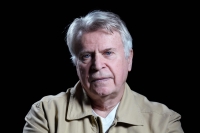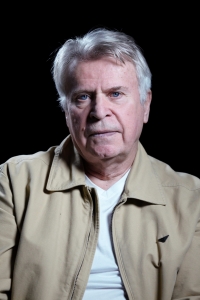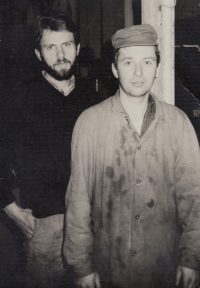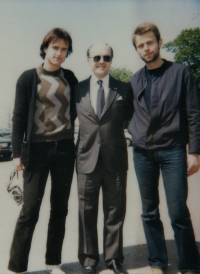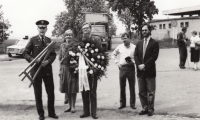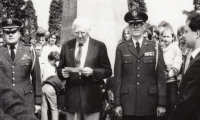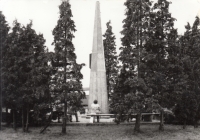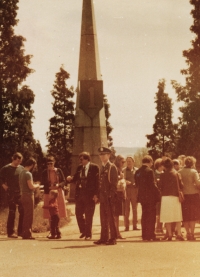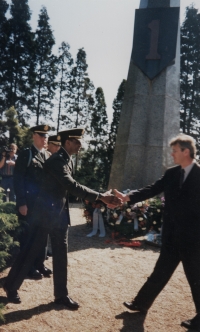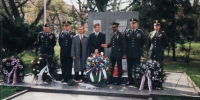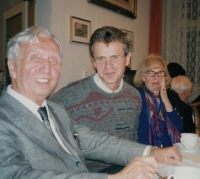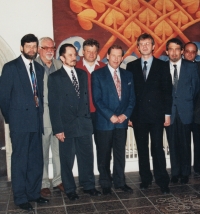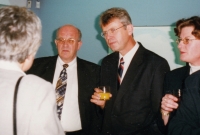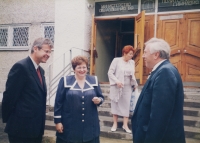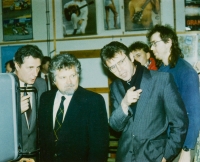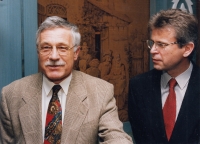The Communist gave the chartist his daughter. Her uncle sued the Plastics
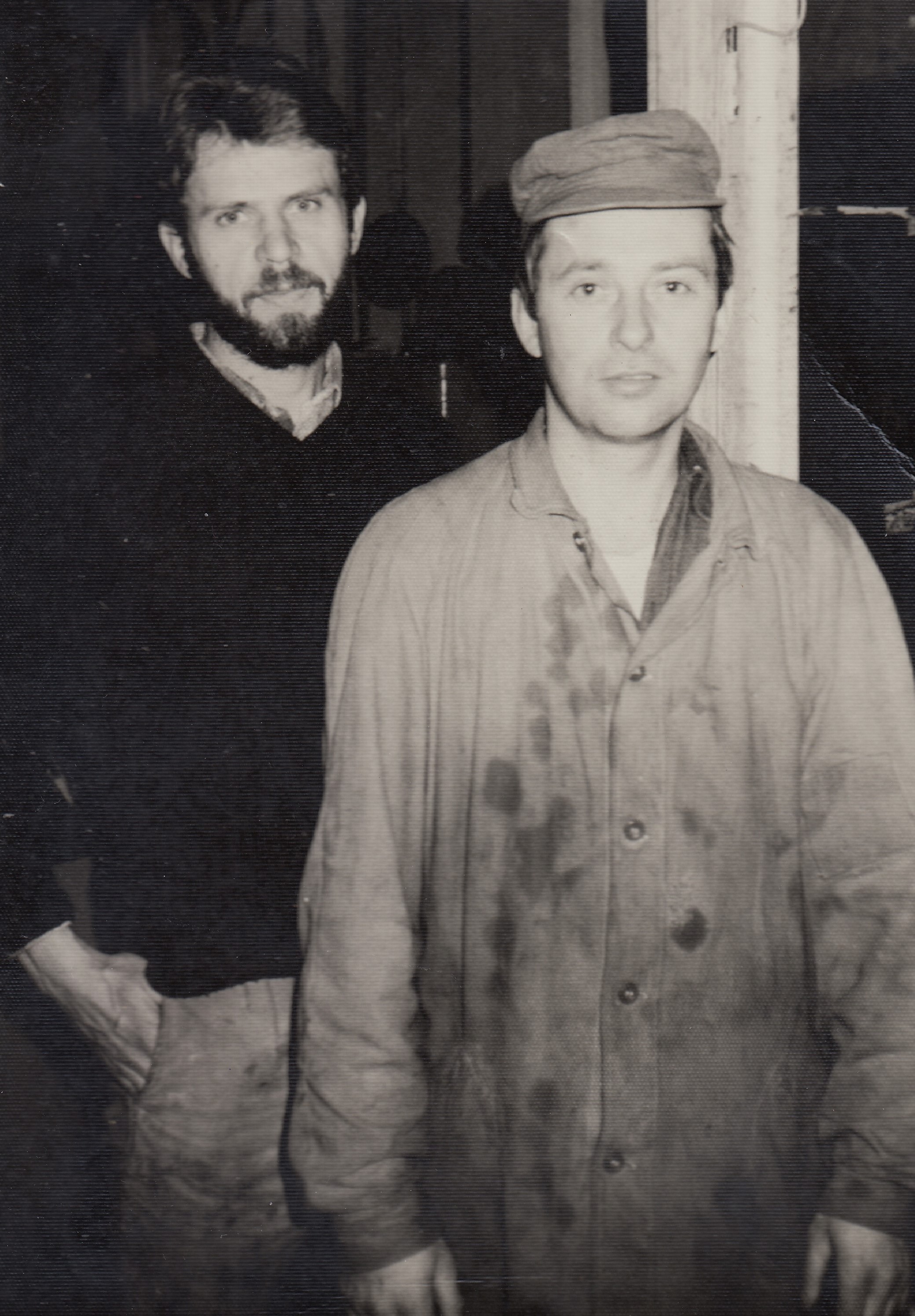
Download image
Otakar Mika was born on 20 September 1953 in Litoměřice, he had a brother. The family moved to western Bohemia in the second half of the 1950s. His father worked as an innkeeper, his mother as a cook, and they often moved with their children to work in the hospitality industry. In 1968 they divorced and Otakar Mika soon left home and started working on the railway as a steam locomotive boiler cleaner. From 1969 to 1978, he went to Chlum St. Mary’s to visit the Dominican scholar Peter Methodius Habáň, where he was educated. At the age of 18 he entered the apprenticeship of Civil Engineering. After his apprenticeship he worked in the brown coal mines in Svatava in the Sokolov region. In April 1977 he signed Charter 77, soon afterwards he got married and in 1978 his son was born. In the autumn of 1978 he enlisted for five months in the army, serving as a maintenance worker at the Lešany unit. After returning to civilian life, he worked for about two years in geological uranium exploration. In 1979 he had a daughter. He lived with his family in Luby, where he was employed by the Cremona musical instrument factory. The State Security (StB) listed him as a 3rd degree NO (hostile person) since 1983; his file probably did not survive. In August 1988 he took part in a demonstration in Prague on the 20th anniversary of the occupation of Czechoslovakia by Warsaw Pact troops. He was also in Prague for the demonstrations for freedom and democracy on 28 October 1988 and 28 October 1989. In November 1989 he founded the Civic Forum in Luby. In 1990, he became the head of the Cheb District Office and was a member of the Civic Movement and later the Freedom Union. From 1994 to 1998, he served as mayor of Cheb, having been elected to the post on the ODS ticket. Since 1999 he has been the managing director of the Kraslice water company. In 2010, he became a non-elected deputy mayor for the Open Town Hall movement. In 2022, he served as mayor of Kraslice for one year. In 2024 he was living in Kraslice.
